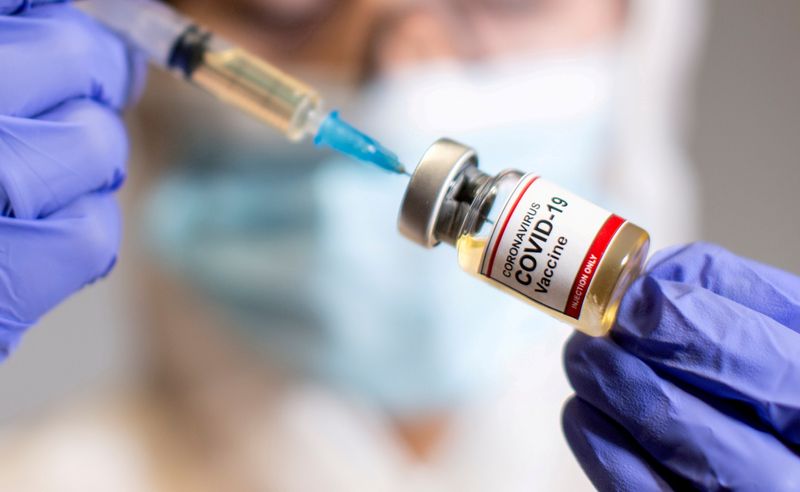(Reuters) - Large global trials of several COVID-19 vaccine candidates involving tens of thousands of participants are well underway with some having gathered sufficient data to seek emergency use authorisation.
The following is what we know about the race to deliver vaccines to help end the coronavirus pandemic that has claimed more than 1.45 million lives worldwide:
Who is furthest along?
U.S. drugmaker Pfizer Inc (NYSE:PFE) and German partnerBioNTech SE released a full late-stage trialdata analysis on Nov. 18 that showed their shot was 95% effective at stopping COVID-19, the highest efficacy rate so far. U.S. pharmaceutical company Moderna released its full analysis on Monday, showing a 94.1% rate in its large, late-stage clinical trial.
Britain's AstraZeneca this month also announced late-stage trial results showing an average efficacy rate of 70% for its vaccine and as much as 90% for a subgroup of trial participants who got a half dose first, followed by a full dose.
Interim late-stage trial results for Russia's Sputnik V vaccine published on Nov. 11 showed the shot is 92% effective.
Johnson & Johnson (NYSE:JNJ) says it is on track to deliver data this year.
What happens in these trials?
The companies are testing their vaccines against a placebo - typically saline solution - in healthy volunteers to see if the rate of COVID-19 infection among those who got the vaccine is significantly lower than in those who received the dummy shot.
How are the trial participants infected?
The trials rely on subjects becoming naturally infected with the coronavirus, so how long it takes to generate results largely depends on how pervasive the virus is where trials are being conducted. Each drugmaker has targeted a specific number of infections to trigger a first analysis of their data.
Early in the trials, infection rates were low. With a surge in infections around the globe in October and November, trial participants became infected more quickly.
Pfizer's full results were based on 170 cases within its trial while Moderna's full analysis was conducted after 196 participants developed COVID-19.
AstraZeneca said its interim analysis was based on 131 infections among participants who received the vaccine and those in a control group who were given an established meningitis shot. Russia's interim examination was conducted after 20 volunteers developed the disease.
How well are the vaccines supposed to work?
The World Health Organization ideally wants to see at least 70% efficacy in trials. The U.S. Food and Drug Administration wants at least 50% - which means there must be at least twice as many infections among volunteers who received a placebo as among those in the vaccine group. The European Medicines Agency has said it may accept a lower efficacy level.
When will regulators rule on safety and efficacy?
U.S., U.K. and European regulators could rule within weeks on the vaccines.
Pfizer and filed for an emergency use authorization from the U.S. Food and Drug Administration on Nov. 20 and has a meeting set with the FDA advisory committee on Dec. 10. Moderna is filing for FDA emergency use authorization and European Union conditional approval on Monday. It expects to meet with the FDA advisory committee on Dec. 17.
AstraZeneca said on Nov. 23 it will immediately prepare the data to submit to regulatory authorities around the world that offer conditional or early approval.
Could these be the first widely available coronavirus vaccines?
Yes, although China launched an emergency use programme in July aimed at essential workers and others at high risk of infection that has vaccinated about one million people as of mid-November.
At least four Chinese vaccines are far along including those from China National Biotec Group (CNBG), CanSino Biologics and Sinovac Biotech.
Sinovac said on Nov. 18 that mid-stage trial results showed its CoronaVac vaccine triggered a quick immune response but the level of antibodies produced was lower than in people who had recovered from the disease.
Russia has also given the Sputnik V vaccine developed by the Gamaleya Institute to 10,000 members of the general population considered at high risk of contracting the virus.
